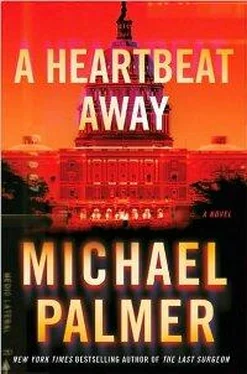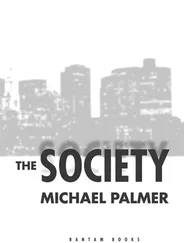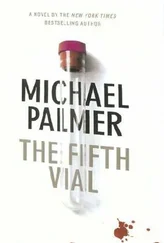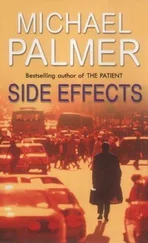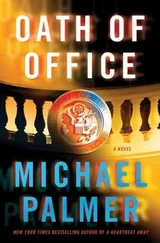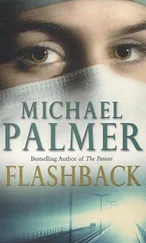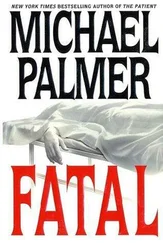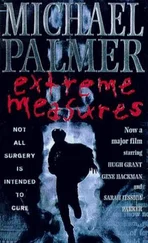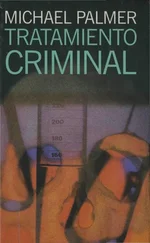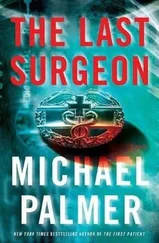“Jordan, don’t!” Allaire exclaimed. “Our scientist is getting close. He’s nearing a breakthrough. Whatever this—this madwoman has been promised by the terrorists is a lie. I’m telling you the truth. There is no treatment yet. No cure. You will severely impede our ability to operate if you undermine my authority here.”
“Give me the BlackBerry,” Lamar said to Ursula. “I want to see the video myself.”
“Jordan, no!”
But Lamar snatched the device from Ellis’s outstretched hand and turned his back to keep the president from taking it away. The architect’s shoulders slumped as he watched the horrific recording. Ellis could hear the tinny audio track sounding through the BlackBerry’s mono speaker. She heard the grunts and the screams. The sound of vomiting. The gunshot.
“Mr. President, what have you done?” Lamar asked.
“Jordan, don’t do it!” the president said again.
“I am the architect of the Capitol, sir. If I wish to broadcast chamber activities, the rules governing this facility permit me to do just that.”
“You will be committing a treasonous act,” Allaire warned.
Lamar shook his head grimly.
“Then that will be an action of which we will both be guilty, Mr. President,” he said. “Madam Speaker, I’ll arrange for the broadcast.”
Lamar turned on his heels and quickly walked away.
“Come back here!” Allaire cried out. “Come back here this instant!”
The president grabbed the armrest of a nearby chair and with surprising, rage-driven strength, yanked it free, splintering the wood. Holding the armrest aloft, he took a menacing step toward Ellis. His face was contorted with anger. The arm holding his makeshift weapon was shaking. Then, suddenly, he dropped the club and gazed with horror at his hands.
Ellis and the others immediately saw what was upsetting him so.
His palms were now marked by an intricate design of circular swirls—lines the color of blood.
DAY 7
12:00 MIDNIGHT (CST)
Battered and aching as much in his heart as his body, Griff kept a vigilant lookout for police on his four-and-a-half hour drive east to Wichita. It was doubtful his disappearance from Kalvesta had been discovered yet, but as a precaution he drove the speed limit, used his turn signals, and adhered to all the rules of the road. Getting stopped for even a minor traffic transgression could lead to questions. And questions, especially the way he was looking, would lead to problems.
After cleaning up the scene of two violent deaths at the Cahill Ranch, Griff drove through the night, stopping at a twenty-four-hour truck store for some clothes, and to clean up. The trip was lonely and anguished. Angie was in a New York hospital, and now, his dearest friend was dead—gone from his life forever. Who was the man who had ambushed them and killed Melvin? How had he known of their plan? Was there anything Griff could have done to anticipate and prevent it? Mile after mile passed, and still the questions remained unanswered.
Making the tragedy of Melvin’s terrible death even more painful was what Griff had done with his friend’s body. When he returned from the barn to Melvin’s side, he futilely checked him for any hint of life. Then, utterly worn out, he sank onto the frozen, windswept ground and wept.
Finally, he changed into the parka and jeans that Melvin had brought for him. Patrols around the lab would be more frequent with Rappaport on base. As quickly as he could manage, he emptied Melvin’s pockets and as reverently as he could, lowered the body over the edge of the steep ventilation shaft. Then, with a silent prayer, he let go.
Next he drove Melvin’s Taurus around until he found the killer’s car—a nondescript rental with an agreement in the glove compartment that almost certainly was obtained using forged papers. The keys were on the floor. A trip back to the barn to stuff the giant’s body into the trunk, and he left the car hidden in a secluded grove of cypress trees. It would be found at some point, and an all points bulletin would probably be issued, but hopefully not until long after he and Brother Xavier Bartholomew had done their business.
As Griff used the winch to resettle the heavy grate—the tombstone for his closest friend—he was thinking vengeance. The death of Melvin’s killer wasn’t nearly enough. He wanted Genesis. He wanted them badly. He would hunt them as intensely as he had hunted outbreaks of Marburg virus, and he would do whatever was necessary to bring them down.
Highway KS-156 was largely deserted. Griff drove with the car radio off, preferring silence and memories of his quirky assistant to news about the Capitol. Eventually, the lights of downtown Wichita came into view. He imagined Sylvia Chen driving along this same road two years before. Her research at the time, he knew, was foundering, and the rug of secret federal financing was about to be pulled out from beneath her. It was hardly a stretch to envision the scientist, frantic to keep her research afloat, arranging a meeting with a bogus saver of souls that would lead to desperate decisions and horrific choices. She was going to accelerate solving the problems of her troubled but potentially remarkable virus by testing it on humans.
Once again, at least to the extent described in her “Recipes from the Kitchen,” Chen had failed to control her creation. All of her human subjects had died—all, that was, except possibly for one. It would have been disaster for her. It was hardly a stretch to imagine that soon after her failure, she had entered into a deal with the devil calling itself Genesis—a deal that would lead to the theft of her virus, the frame-up and jailing of one of her scientists, and finally to her violent death and the impending deaths of hundreds more.
Now it was time to learn exactly what she had done here in Wichita, whom she had done it to, and perhaps most important, what, if anything, she had learned.
Seething, Griff followed directions to the Certain Path Mission that Melvin had printed out and left on the front seat of the Taurus. Streetlamps shimmered like disco balls in the night, reflecting off the still water of the Arkansas River. The height of most of the office towers in the sleepy downtown would have been lost in other metropolises, but Griff’s impression of the city, as announced on several signs, was that this was a nice place to live. A nice place to live unless you happened to stumble into the Certain Path Mission looking for help.
He drove past a tall highway billboard offering prayers for the government, and all the victims of the Capitol tragedy.
The Certain Path Mission was a square, two-story stone building, tucked away in a quiet neighborhood on the outskirts of Wichita. A sign on the front lawn, lit by two spots and fenced by a circle of neatly trimmed shrubs bore the ministry’s name. Beside the sign stood a small, stone statue of a Native American woman whose bronze eyes gazed reverently skyward.
It was just after midnight.
Griff worked his way around the building perimeter and tried to peer through the evenly spaced windows. It was hard to imagine the self-proclaimed cleric living anywhere other than in the mission. There were no interior lights on that he could see, so after a moderately calming breath, he shrugged and rang the front doorbell. Above him and to his right, a security camera looked down impassively. He had no qualms whatever about waking the brother. From all he could tell, this was a bad man who had done some very bad things.
After a minute, he rang a second time. The heavy oak door creaked open. Xavier Bartholomew, rubbing sleepily at his eyes, peered out from the blackness. Griff had no doubt that the gesture belied the fact that the man had checked his security screen before opening the door.
Читать дальше
